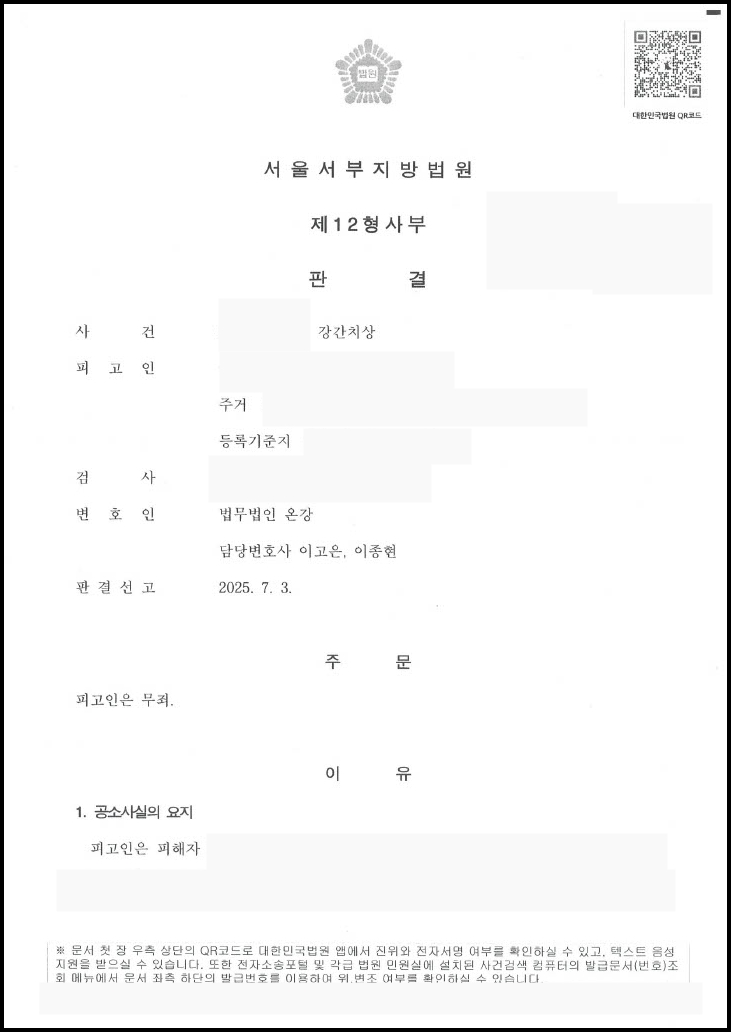Overview of the case (facts)
Our client developed a mutual attraction to a woman he met at a bar, struck up a conversation, and consensually went to a hotel to have sex. However, the woman accused him of rape a few days later, alleging that the sex was coercive and that she suffered a broken rib in the process.
Our client came to Ongang Law Firm to clear his name after being branded as a sex offender.
Case Issues (Case Features)
The case centered on establishing the credibility of the complainant's testimony and the absence of a causal link between the alleged injuries and the client's conduct, particularly as the complainant's testimony was inconsistent and clearly at odds with objective evidence from law enforcement to the courtroom.
Assistance from the warm river
In order to prove the core claim of a "consensual relationship" and clear him of rape and injury charges, the defense team employed a strategy of impeaching the credibility of the victim's testimony and highlighting the consistency of the defendant's claims through objective evidence.
1. highlight contradictions in statements
- We focused on points where the victim's statement changed over time and where it clearly contradicted objective evidence (CCTV, payment history, etc.).
- We undermined the credibility of the statements by showing that the behavior of the two men after the incident did not indicate a coercive relationship.
2. Prove innocence through objective evidence
- We emphasized that the accused's story was consistent from start to finish, and that digital evidence and financial records supported it.
- This allowed us to poke holes in the victim's story, while also lending credibility to the accused's claims.
3. Break the causal link between 'injury' and behavior
- We noted that the victim lacked direct evidence that the alleged physical harm (injury) was caused by the accused's conduct.
- Rather, based on inconsistencies in their statements about when or how the injuries occurred, they denied a direct causal link to the alleged offense.
In conclusion, Ong Kang argued for a lack of "proof beyond a reasonable doubt" and argued strongly that the principle of presumption of innocence based on objective evidence should apply.
Results
The court found that the victim's statements were inconsistent and inconsistent with objective evidence, such as CCTV, making it difficult to find them credible.
The court also found that there was a lack of evidence that the accused had forcibly subdued the victim, but rather that there were circumstances that made it difficult to conclude that it was rape, such as stopping the act when she said she felt sick during sex.
In the end, the trial court acquittedhim, citing a lack of evidence to prove his guilt based on the cardinal rule of criminal trials, "when in doubt, for the benefit of the accused.
[Judgment].




